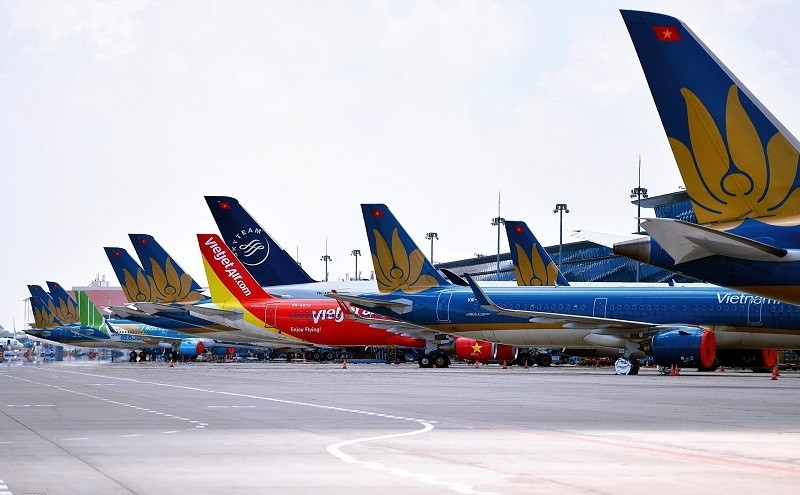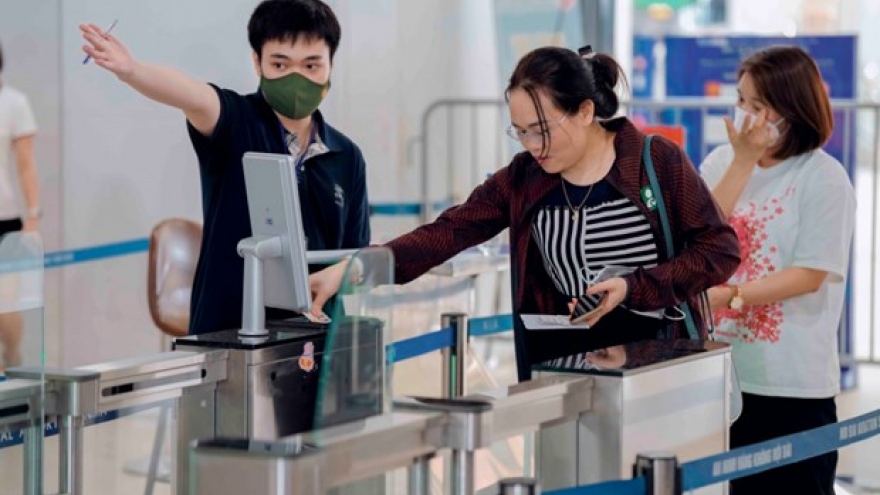Several factors affecting aviation sector recovery
Many airlines are operating with fewer aircraft than last year coming into the peak summer period as fleets have been reduced to service debt.
Pacific Airlines has recorded zero passengers since the start of April after the budget airline returned its last aircraft at the end of March in an attempt to write off debts, perfectly encapsulating the ongoing struggles of businesses operating in the aviation sector.
The carrier has reportedly been negotiating with foreign aircraft charting units to lease up to three aircraft to allow a resumption of operations by June, as requested by the Civil Aviation Authority of Vietnam (CAAV).
Pacific Airlines is not the only airline to have curtailed the size of its fleet for financial reasons. Bamboo Airways, which used to operate 30 aircraft during its peak and held nearly 20 per cent of the domestic market, has returned 22 aircraft for debt rescheduling in light of its business restructuring plans.
The airline is currently operating just eight narrow-body Airbus 320/321 aircraft, whereas the minimum scale for an airline to be profitable is about 30 aircraft.
By the end of April, Vietnamese airlines' fleet consisted of 213 aircraft, 18 fewer compared to 2023; in which the actual number of aircraft in operation ranges from 165-170 aircraft, a drop of about 40–50 units compared to last year's average.
During the upcoming peak summer period from June to August, local airlines will operate 178 aircraft, a reduction of 38 units compared to last year, as more than 40 AirbusNeo aircraft belonging to Vietnam Airlines and Vietjet have been grounded due to a global engine recall by manufacturer Pratt & Whitney (PW).
PW still has no information about what support and compensation it can offer the two airlines, causing further disruption in operations.
Although the demand for travel at home and abroad has recovered well since early 2023, the six airlines that possess air transport business licences have not all posted positive results.
The outbound travel market witnessed a strong recovery last year as 12.6 million international visitors came to Vietnam, nearly 3.5 times more than in 2022, exceeding 57%% of the original target of 8 million. In the first quarter (Q1) of this year, Vietnam welcomed more than 4.6 million foreign visitors, up 1.7-fold on-year.
Vietnam Airlines’ Q1 consolidated financial report noted that the company posted nearly US$1.18 billion in revenue, showing a 25% jump on-year. After deducting costs, it counted US$185 million for the same period, compared to the US$1.5 million losses incurred a year ago.
Vietjet reported US$741.3 million in consolidated revenue and US$22.5 million in consolidated profit in Q1, equal 38% and 212% jump on-year.
Similarly, Vietravel saw a 42% jump in revenue which approximated US$20.5 million in net profit, marking the first time the company made a profit for three consecutive months since commencing operation more than three years ago.
The remaining airlines continue to struggle to pay salaries to flight attendants, pilots, and other workers.
Another factor is that despite higher ticket prices on local routes in the year to date, it is still not enough to cover actual expenses.
For instance, between January and April, on the three key domestic routes of Hanoi-Ho Chi Minh City, Hanoi-Danang, and Ho Chi Minh City-Danang, the ticket price of Vietnam Airlines rose around 20%, 28% and 15% respectively; while prices at Vietjet increased by about 18%, 40% and 27%, and Bamboo Airways passengers saw their airfare grow by 2.1%, 24.4%, and 22.5% on the same respective routes.
"If an airline operates domestic and international routes with low frequency, it will find it very difficult to grow its revenue," said one airline representative. "In addition, airfare price increases could prompt many passengers to pivot to other means of transport that are more affordable, such as rail and road."
In addition, increased pressure from the surging exchange rate of the USD against other currencies has dampened the enthusiasm for travel. Armed conflicts in some countries and regions have disrupted the supply chain of products, materials and equipment for the aviation industry, as well as prolonged flight schedules and routes.
"These issues have exacerbated the burden on airlines and other aviation businesses," said Dinh Viet Thang, head of the CAAV.





